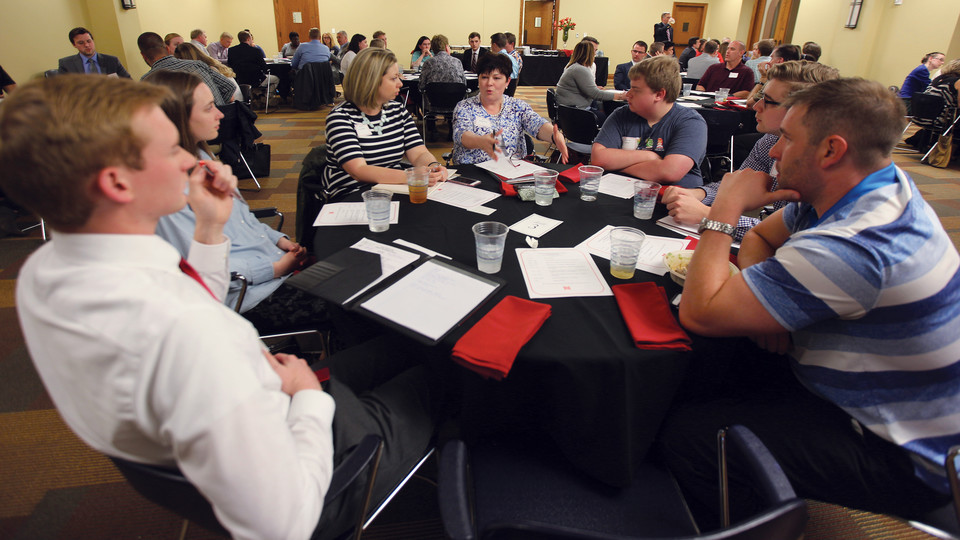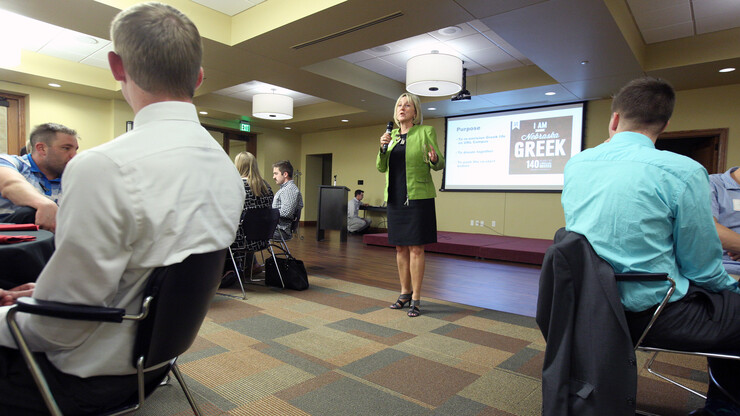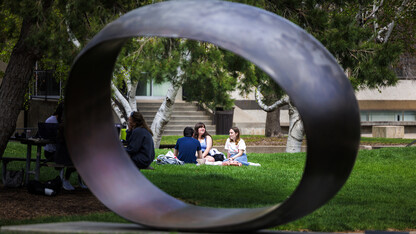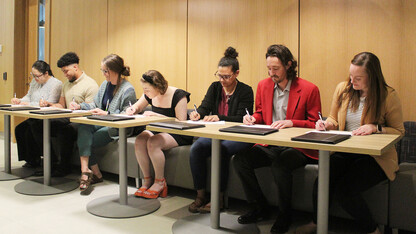· 4 min read
University launches initiative to vitalize Greek life

A new University of Nebraska-Lincoln initiative to re-envision Greek life has launched with administrators and student leaders finding common ground.
Nebraska’s Greek Vitality initiative opened April 24 with nearly 90 Greek organization leaders and administrators — including Chancellor Ronnie Green and Executive Vice Chancellor Donde Plowman — coming together in the basement of the Newman Center to discuss the future of fraternity and sorority life at Nebraska. Led by Plowman, the conversation opened with students, administrators and staff working together in small groups to identify the top three things Greek life at the university should and should not reflect.
“This initiative was begun by Chancellor Green and me having small conversations with Greek students, alumni and advisers about things we could be doing differently,” Plowman said. “Instead of having those one-on-one conversations, we decided to bring everyone together in one room and start working to make a difference as leaders.
“This is the chance for us to dream together, to push the reset button and envision what Greek life at the university could be.”
After a 20-minute discussion, student leaders presented each small group’s concepts of what Greek life should and should not be. Familiar themes of high academic achievement, leadership development, benefits of sisterhood/brotherhood, unity, diversity and strong connections with university administrators resonated in what Greek life should be on campus. Top responses on what it should not be included hazing, binge drinking, discrimination and being disconnected from campus.
“These common themes show we have widespread agreement on what Greek vitality should and should not include,” Plowman said. “If we all agree on these important areas, then let’s do something about it. Let’s develop a core set of principles that we can all buy into.”
Green said the time has come for the university to seriously think about the way its Greek system is structured and how it can be improved for future students.
“If the Greek system is going to be vital and energized at the level it can and should be for the university and the future, accountability has to go back to the Greek system,” Green said. “We need to think about how we handle Greek issues and put the accountability back where it belongs, with the houses, organizations and chapters themselves.”
Jaci Manning, alumni adviser for Alpha Delta Pi, said it was refreshing to see top university administrators attend and take part in the discussion.
“It’s absolutely great that the university is willing to work with the Greek system to improve not only the relationship among the chapters themselves, but between the Greek community, the university and non-Greek student organizations,” Manning said. “I hope that, through these discussions, we can build that greater sense of unity campuswide.”
After brief presentations that included facts and figures about fraternity and sorority life at Nebraska, Plowman named each small group a task force and assigned them a specific issue to discuss and develop concepts around to improve Greek life on campus.
The six issues include:
- Greek living (freshmen living, housing expansion, recognition, etc.);
- student life;
- relationships with university leadership/organizations;
- first-year experience;
- chapter balance; and
- safety and accountability.
The task forces will report findings during a June meeting with Green, Plowman and the university’s soon-to-be-named interim vice chancellor for student affairs. Plowman said those reports will shape the direction of the initiative.
Gabby Williams, president of the university’s Panhellenic Association, said the conversation comes at a key time.
“This discussion reflects a Panhellenic Association initiative to change the culture of the Greek system,” Williams said. “It’s great to see the university at a high level invest in and be committed to the Greek community. Tonight was a great starting point, and I’m excited to see what develops from this conversation.”
For more information on Greek life at Nebraska, click here.








